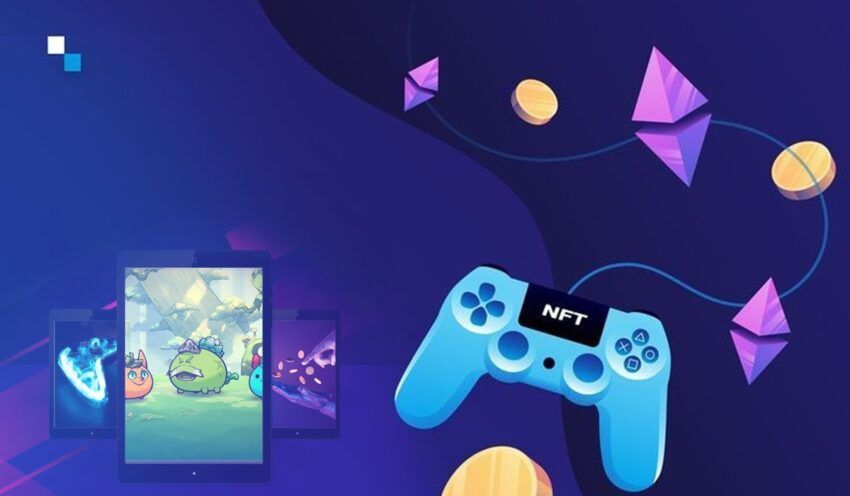The newly emerging world of blockchain took a hit during the “crypto winter” between 2021 and 2022. The crash of FTX and more stood out as a lesson to be learned by everyone in the industry, which caused projects within the sector to take a breath.
Despite the challenge, gaming developers have found new ways to build innovative games that offer players unique benefits such as ownership of in-game assets, the ability to trade those assets on open markets and more. Since the GameFi world is relatively new, there is still room to learn. The potential for play-to-earn games to facilitate mass adoption is high.
“Play-to-earn” is a gaming model in which players can earn cryptocurrency or other digital assets by playing games. This model has the potential to redefine the gaming industry in several ways.
The main benefits of play-to-earn games are that they allow players to earn real value for their time and effort. In traditional games, players often invest a lot of time and energy into the game, but they cannot monetize their in-game achievements or assets. But with play-to-earn games, players can earn cryptocurrency or other digital assets that have real value and can be traded on open markets. This could make gaming a more attractive and rewarding activity for many.
Another potential benefit of play-to-earn games is that they help to create more sustainable business models for game developers. In stereotypical games, developers often rely on a small percentage of players who spend a lot of money on in-game items or microtransactions to generate revenue. With play-to-earn games, developers have the potential to generate revenue from a more significant percentage of players, as all players have the opportunity to earn cryptocurrency or other digital assets.

With a more immersive and engaging gaming experience, play-to-earn games could make a stronger sense of ownership and investment in the game world by allowing players to earn real value for their in-game achievements. This leads to more dedicated and engaged communities of players.
In a nutshell, play-to-earn games can revolutionise the gaming industry by creating new opportunities for players and developers. Although it is still in infancy, the potential for play-to-earn games to reshape the way we think about and play games is remarkable.
When it comes to the downsides of blockchain gaming, several challenges have limped the industry, many of which are related to the broader cryptocurrency industry. Some of them are as follows,
Volatility: Cryptocurrency prices are highly volatile, making it formidable for players and developers to plan for the future. This can be especially difficult for developers who rely on cryptocurrency-based revenue streams as the value of their earnings can fluctuate significantly over time.
Complexity: The blockchain and cryptocurrency industries can be complex and intimidating for many, making it a barrier for the players to enter. For casual or non-technical players who aim to become more familiar with concepts such as blockchain, smart contracts, and cryptocurrency wallets, this seems pretty difficult
Regulation: Since the cryptocurrency and blockchain industries are still largely unregulated, they are at risk of creating uncertainty and risk for players and developers. This can make it difficult for companies to operate and for players to feel confident that their assets are secure.
The best way to address these challenges is to focus on education and outreach to help more people understand and become comfortable with blockchain and cryptocurrency technologies. This could involve creating more user-friendly tools and resources, such as easy-to-use cryptocurrency wallets and simple guides to blockchain gaming.
It could also include working with regulators and policymakers to develop more precise and consistent rules for the industry. Finally, it could involve building strong and transparent relationships with players and communities to create trust and confidence in the industry.
Conclusion
The future of the cryptocurrency gaming market is super optimistic. Cryptos have the potential to revolutionize the traditional way of conduct and could potentially be the next big thing, or it has already become the next big thing. However, the future can be highly volatile, making it difficult for mass adoption at the moment. Let time tell the real story!
Opinion Article By Harishkarthik Gunalan, CEO & Co-Founder, CoinFantasy
Disclaimer
In compliance with the Trust Project guidelines, this opinion article presents the author’s perspective and may not necessarily reflect the views of BeInCrypto. BeInCrypto remains committed to transparent reporting and upholding the highest standards of journalism. Readers are advised to verify information independently and consult with a professional before making decisions based on this content. Please note that our Terms and Conditions, Privacy Policy, and Disclaimers have been updated.


